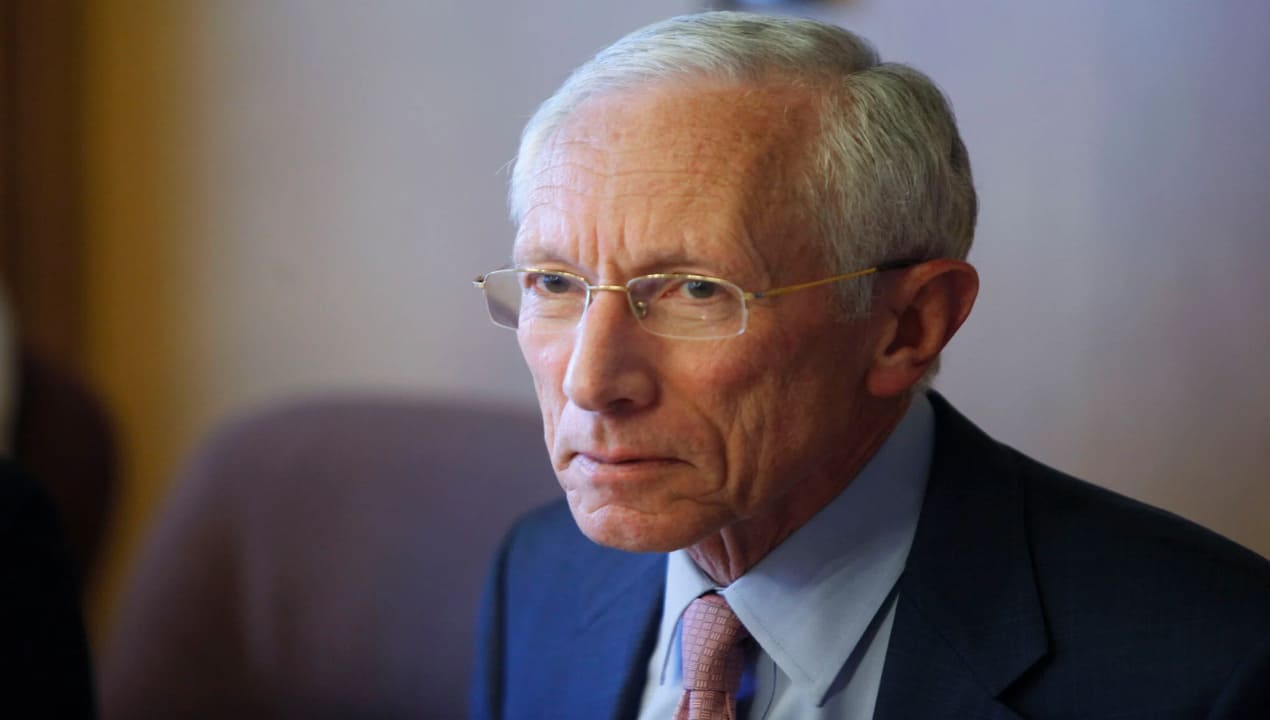
Independent Report – Stanley Fischer, a highly influential economist who played a key role in shaping modern economic theory and policy, passed away at the age of 81. Fischer’s career spanned several prestigious positions, including serving as the Governor of the Bank of Israel and as Vice Chair of the U.S. Federal Reserve. Stanley Fischer contributions to economics and global finance earned him widespread respect and recognition.
Born in Zambia, Fischer held dual citizenship in the United States and Israel. Throughout his life, he built a reputation as a thoughtful and effective leader in the economic world. The Bank of Israel announced his death on a Saturday night but did not disclose the cause. Fischer’s legacy, however, remains strong in both academic circles and financial institutions worldwide.
As a professor at the Massachusetts Institute of Technology (MIT). Fischer trained a generation of economists who went on to become influential central bankers themselves. Among his students were Ben Bernanke, the former Chairman of the Federal Reserve. And also Mario Draghi, the former President of the European Central Bank. Fischer’s academic influence helped shape global economic policies through the leaders he mentored.
Fischer’s professional career was marked by several significant roles. He served as the Chief Economist at the World Bank and was the First Deputy Managing Director of the International Monetary Fund (IMF) during the Asian financial crisis, a critical period that tested the resilience of many economies. Later, he held the position of Vice Chairman at Citigroup from 2002 to 2005. Where he was involved in banking strategy and risk management.
Also Read : SEC Plans Budget Freeze and Job Cuts to Boost Efficiency
His most notable leadership was during his time as Governor of the Bank of Israel from 2005 to 2013. Under Fischer’s guidance, Israel’s economy managed to withstand the 2008 global financial crisis with minimal disruption. He introduced reforms such as creating a monetary policy committee that set interest rates, aligning Israel’s financial system with other advanced economies. His policies helped stabilize the Israeli economy and increased its prominence on the global stage.
Following his tenure in Israel, Fischer served as Vice Chair of the U.S. Federal Reserve from 2014 to 2017. During this period, he contributed to important decisions that shaped U.S. monetary policy amid a complex global economic environment. He also took on a leadership role at Bank Hapoalim, one of Israel’s largest banks, serving as a director in 2020 and 2021.
Fischer’s impact was deeply felt in Israel. Current Bank of Israel Governor Amir Yaron praised Fischer’s “truly significant” contributions to the institution and to advancing the country’s economy. Fischer had played a critical role in stabilizing Israel’s economy during periods of crisis, including the hyperinflation crisis of 1985, when he was part of the economic stabilization plan.
His appointment as the head of Israel’s central bank was made by then-Finance Minister Benjamin Netanyahu and Prime Minister Ariel Sharon. Netanyahu, who is now Prime Minister, described Fischer as a “great Zionist” for choosing to leave the United States and serve Israel. Netanyahu highlighted Fischer’s contributions as an economist and his role in restoring stability during the global economic crisis.
Israeli President Isaac Herzog also honored Fischer’s legacy, emphasizing his role in strengthening Israel’s economy and its global reputation. Herzog described Fischer as a world-class professional, a man of integrity, and someone who had a heart of gold. He noted Fischer’s deep commitment to peace and his genuine care for the wellbeing of the nation.
Stanley Fischer was known for being soft-spoken but highly effective in his work. His dedication to economic stability and growth left a lasting impression on the institutions he led and the people he worked with. Fischer’s ability to navigate complex financial challenges helped safeguard economies during uncertain times and fostered trust in the systems he managed.
In remembering Fischer, many highlight not only his technical skills but also his character and leadership qualities. His career bridged continents and cultures, reflecting a commitment to both his professional duties and his personal values. Fischer’s legacy will continue to influence economic thought and policy for years to come. Making him a towering figure in the history of global economics.
Also Read : Unique, Trendy & Suitable Women’s Long Sweater For Young People